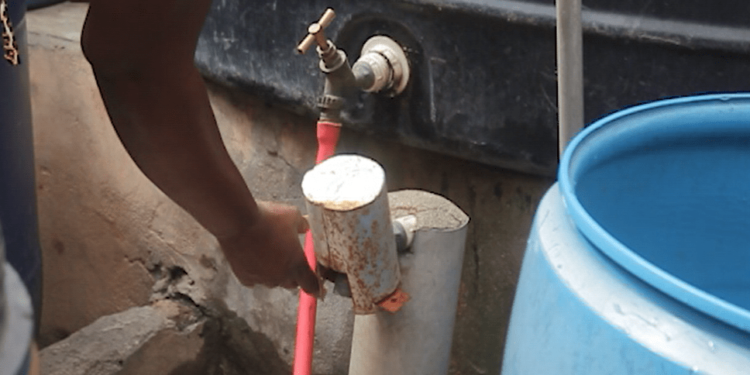The absence of good drinking water has turned life into a nightmare, a predicament that has become the norm for residents of James Town, Chorkor, Bubuashie and other communities in the Ghana’s capital of Accra.
Lives of these residents have taken a harsh turn, costing them an arm and a leg to get water for domestic uses.
It has now become a daily struggle as some are compelled to spend nearly GHC500 every two days to buy water from vendors to survive.
To make matters worse, some visit the hospital regularly to treat their skins due to the use of untreated water for bathing.
Some traders, for instance, say they are increasingly pushing their meagre proceeds into purchase of water from vendors.
“It is very challenging to get potable water in this area. Even the underground water we buy has high salt content,” a kenkey seller said.
In the peak of the covid-19 pandemic, government supplied free water to these residents but, since then they have had to survive on their own.
“I will travel any distance to just to get good water to do my business. For seven years now, no water has passed through this tap,” another resident stated.
This is one of the few houses that have tanks to store water.
In almost every two days, an amount of GHC480 is spent to buy water from suppliers.
“In order to fill my bigger tank, I have to spend GHC480. Sometimes, it takes less than two days for the water to finish and once there is no water, I have to immediately buy new one,” Elizabeth Acheampong, a resident of James Town said.
The condition of the water used for bathing is leaving some residents with skin-related diseases that they regularly have to treat.
“I visit the hospital regularly to treat skin rushes. Unfortunately, it is the same water that I use to bathe so the condition persists,” a resident observed.
Another added that “sometimes you even fetch the water to bathe and it doesn’t even lather with the soap. You then have to apply the soap several times before it even lathers.”
“We are billed every month for no water supplied. We won’t pay the bills.”
I visited other communities like Chorkor, Labadi and Bubuashie where residents see water flow only at midnights.
Sarah, a resident of Chorkor, says people are “just suffering.”
The Water Citizens Network, a non-governmental organisation in the water sector, is concerned about the prevailing issues.
Convener of the Network, Geoffrey Ocansey, observed that relatively poor people are now paying more to access water than their well-to-do neighbours.
“I think there is a lot that the government must do to help the situation. The rationing [of the water] is one big problem and the other side is where it’s not available at all. So, those people have to be buying water.”
“When they buy, if even the quality is good, that is another thing,” he said.
He says there is a need to increase funding in the sector.
“Government must expand work on the pipelines running closer to where the residents are. Once government increases the funding to water and its production, the cost of having access to water will reduce,” Geoffrey Ocansey added.
It now looks like a luxury to have good drinking water, and one that can be used domestically.
All these residents want is an urgent, improved water delivery to ease their lives.



